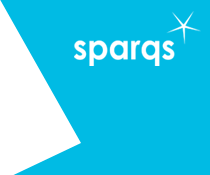In this interview we talk to Chris Daisley, Vice-President for the School of Engineering and Built Environment at Glasgow Caledonian University Students’ Association. Prior to becoming elected, he studied Computer Networking both as an undergraduate and postgraduate student. One of his main focuses this year is postgraduate student engagement at GCU.
1. First of all, one of our favourite opening questions – what does the phrase “student engagement” mean to you?
I think of “Student Engagement” as how we better involve the student body in a wide range of activities and roles both in and outside of their academic environment. For example, this can be from involving students in the democratic process of their Students’ Association to their engagement in the continual process of improving their learning experience.
2. GCU Students’ Association has a rather unusual sabbatical system, in that rather than one Vice President (Education), you have vice-presidents allocated to each of your university’s three schools. How does that system work, and what do you find are its strengths? Are there advantages, for example, to each school having a dedicated sabb to work with?
The new model allows our vice presidents to have a closer working relationship with their academic school than a dedicated education officer would have with all of the schools. The model requires each of the vice-presidents to assume the role of Education officer of their school. As a result, I believe that the sabbatical team overall has a deeper understanding of the learning teaching and quality process as it’s a common role. In my opinion, the schools prefers the model as it allows the officers and school senior management to have better communication with each other.
3. How are the vice presidents allocated to their school? We understand for example that you don’t even need to have studied within a school to become its vice president – does that mean a lot of work at the start of the year getting to know the school, its staff, students, curriculum and so on, if you’ve never been a student in it?
In the second year running of our new model, so far, the schools are allocated through discussion by the executive team as well as all of the remit areas. The common factors that influence the allocation of schools are: studying background of the elected vice president and manifesto points. As a student you wouldn't usually meet with the SMT of the school. I believe it’s important with our model to meet and get to know all of the senior management team within your school - regardless if it’s your own school as you have a close working relationship with them. In regards to relating to the students and curriculum in a different school, I think it would require the officer to be more open and adaptive in their approach to understanding what challenges are faced by the students and what the curriculum requires of the students.
4. You studied at both undergraduate and postgraduate level prior to your sabbatical position. How has this helped your perspective on the learning experience? Do you think there are – or should be – different approaches to student engagement for postgraduate students?
I believe that having been both an undergraduate and postgraduate student has been of great benefit to me in my role. Understanding both types of learning experiences has allowed me to compare them in order to help identify common areas of improvement and good practice. There needs to be a different approach taken in order to engage postgraduate students. I believe the key is to create a culture of belonging through identifying what postgraduate students’ expectations are.
5. And what are those expectations? Are they radically different from the expectations you might have as an undergraduate?
In the sense of social expectations, I would agree the differences are radically different. As a postgraduate one of the main expectations is to have the opportunity to professionally network with others in a more formative environment than we normally see in typical undergraduate aimed events.
6. Finally, are there any other projects you’re going to be working on in your school in the coming year?
Yes, this year is working with the school on enhancing the quality of learning and teaching in programmes. In the early stages of the coming academic year, I am leading a student-led programme review. The programme review is a joint project between the students’ association and school, in response to the National Student Survey. The fundamentals of the programme review were established last year through experience discussions with students and staff which provided in-depth feedback to the school on particular themes for improvement within specific programmes. In addition to conducting the review again this year, the aim is to work with the university to align the student-led programme review to quality and also embed the process within the institution as a resource that can be used. In addition, I am also involved in a university-wide steering group which is currently looking at student employment on campus and how it can be better embedded within the university.
.
Thanks to Chris for being an interviewee. To suggest a future subject for interview, please contact us.
This interview is part of a series of occasional interviews on our website with student engagement practitioners – both staff and students, and from within Scotland’s university and college sector and beyond. The interviews aim to capture the different perspectives that people have on student engagement in the quality of learning.


